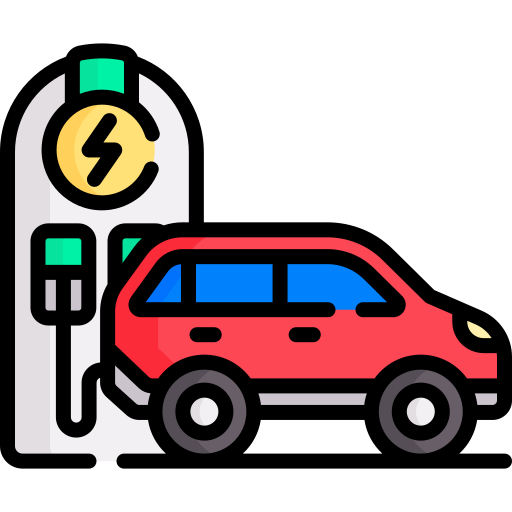Car manufacturers have called for urgent action to reignite the switch to electric vehicles, after sales figures showed slowing demand among ordinary motorists for battery-powered cars.
While overall UK registrations grew by 1% in April year-on-year to 134,000, the increase was caused by fleet sales, with private buyer sales down by almost 18% on last year.
Manufacturers are alarmed by slowing sales growth in battery electric vehicles, which in the first four months of 2024 have only increased market share by 0.3% from the same period in 2023, to 15.7%, despite the rapid take-up in previous years.
While the industry expects the figure to improve this year, the Society of Motor Manufacturers and Traders (SMMT) said that BEV sales would be below government targets of 22% of all new cars, and called for steps to “re-enthuse” buyers, including tax cuts, incentives and more chargers.>
I’m not paying 50 grand for a car that should be 30 grand at best, I’ll keep on running what I have now thanks.
This is essentially it. The surge in demand probably came from company cars and those who can afford to buy expensive cars, but now that demand has been met then sales have dropped off. We’re not yet in the market to replace our car but I do keep an eye on things, and every time I look at a new EV, they’re like 30 or 40k over what I’d be willing to pay.
I imagine it’s an issue of economies of scale, they’re more expensive because they’re producing less than ICE vehicles; the only way to get them cheaper would be for some heavy government subsidies.
If UK car makers can’t get their EV costs down, they will be obliterated.
The upfront costs are coming down, heading to ICE parity, while the running costs and maintenance are much lower.
Assume 3 miles per kWh
kWh = 7.5p night rate
Cost per mile = 7.5p/3 = 2.5p per mile
Assume 30 mpg
Assume £1.50 per litre
There is 4.54609 litres per gallon.
So that is 30 / 4.54609 = 6.599 miles per litre
Cost per mile = 150p/6.599 = 22.73p per mile
Edit: fuel economy is from two vans I owned. 30mpg is about equivalent to 3mpkwh. Neither is great but they are equivalent.
Double the mpg for a decent diesel gives about 11p/mile, which is what I get most of the time.
Driving 8k miles per year that nets a £680 saving per year. That does not justify changing vehicles. Even a 5 grand difference in price would not be acceptable to most people imo. Even dropping road and luxury taxed barely change it.
If you double the mpg, you should double the miles per kWh, as 3 isn’t very good either. I choose those numbers because that is my old diesel van vs my new EV van. 30mpg is generous and 3mpkwh is conservative. But the EV is a bit smaller, so that’s about right.
I do about a thousand miles a month. I save about 20.23p per mile. So I save about £202 a month just on fuel.
The numbers of pence per kilowatt hour for an EV does not change dependent on the comparison to a petrol or diesel car. If we are talking about the efficiency savings, we would expect greater savings for the EV compared to a petrol car doing 30 mpg versus the comparison to a diesel car. And 3 miles per kilowatt hour isn’t that unreasonable, you are not going to get 4 except in specific circumstances.
I think it’s obvious that the more miles per unit time, the quicker an EV will pay off. But then, one does need to charge at home so the other challenges (off road parking, long enough between use periods) makes a large difference. It does not surprise me that it works better for you with a works van and high mileage, where it can be classed as a business expense with BiK bonuses. But it doesn’t help Joe bloggs who does 6k/year at a push.
I’d like to buy an EV. I expect my next car to be one, whether I like it or not, and I’ve set everything up including solar panels to wring out every efficiency I can. But with this tax system and fuel cost differences the sums don’t add up for me, and most other people.
You have to compare like for like. A 60mpg is not equivalent to 3mpkwh. 60mpg is top end efficiency and 3mpkwh is bottom end.
If you can’t charge at home, right now, I’m not sure I’d advice an EV yet. Public chargers are normally a rip off. It’s pretty much the same kind of costs as fossil fuels. It needs tackling frankly.
If you got solar and a home charger , then yes, you can drive around even cheaper than my numbers. I know people whose mile cost is basically zero over summer and only the same as me in winter.
The upfront costs are coming down as the ranges go up. Long run, economics alone will kill ICE. Even without the negative feedback loops it will get in as there is less ICE so less economics of scale.
What is the charging infrastructure like in other parts of the UK outside of London? I don’t see any on-street charge points, the multi-story car parks here have about 6 charge points combined, and I think Tesco’s has 3. Other supermarkets appear to have none.
Like a very large section of the UK, I don’t have a driveway. If these car manufacturers were actually wanting to shift EVs they would be investing in the charging networks but it appears that like most things “that’s someone else’s job”, so no-one does it.
I don’t even reach the point of caring about price, or range, when I’m more concerned about charging the thing in the first place.
What is the charging infrastructure like in other parts of the UK outside of London?
I don’t have an EV, so I am probably not keeping as close an eye on it as I would be, but it isn’t great. And the price can be off-putting - they discussed this story on the radio yesterday an expert said you could pay 7p/kWh at home but ten times that amount elsewhere.
Used electrics are good value now. I have an electric car which I lease, and so far the depreciation on the car has outstripped the cost of the lease by a factor of 2, meaning I will definitely be “up” vs having bought it outright. I’ll definitely buy a used electric once the lease expires.
There’s no way the cost of new electrics won’t come down, economic gravity will force it.
Make a carbon tax
This is the best summary I could come up with:
Manufacturers are alarmed by slowing sales growth in battery electric vehicles, which in the first four months of 2024 have only increased market share by 0.3% from the same period in 2023, to 15.7%, despite the rapid take-up in previous years.
While the industry expects the figure to improve this year, the Society of Motor Manufacturers and Traders (SMMT) said that BEV sales would be below government targets of 22% of all new cars, and called for steps to “re-enthuse” buyers, including tax cuts, incentives and more chargers.
The SMMT said incentives had increased take-up of battery electric vehicles in the fleet market, and similar moves for private buyers would hasten the transition.
Temporarily cutting VAT, treating EVs as fiscally mainstream not luxury vehicles, and taking steps to instil consumer confidence in the charge point network will drive the market growth on which Britain’s net zero ambition depends.”
Ian Plummer, commercial director of Auto Trader, said EVs were typically 35% dearer than traditionally fuelled petrol and diesel models, adding: “The discounts we’ve seen manufacturers offer to incentivise consumers into new electric cars seems to be working … That said, we’ll need to see even more price action to achieve mass electric adoption.”
Lisa Watson, director of sales at Close Bros Motor Finance said: “Manufacturers may have cause for concern that the number of new petrol vehicles registered continues to outdo the sales of battery electric vehicle registrations, bringing into sharp focus the work the UK government needs to do to improve inadequate infrastructure such as charging points, and allay motorist concerns to encourage adoption.”
The original article contains 505 words, the summary contains 264 words. Saved 48%. I’m a bot and I’m open source!
Is anybody buying a new car of any type right now?
Looking at vehicles on the road, yes. To be fair I do see more EV’s now more than ever too.
People are beginning to realise that battery power isn’t all it’s cracked up to be when it comes to the mining of the materials and then subsequently the recycling of those batteries.







